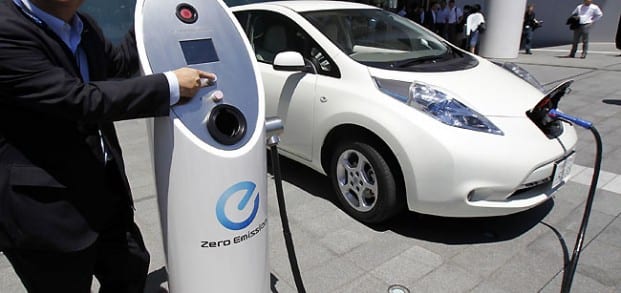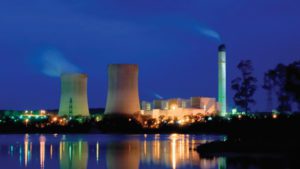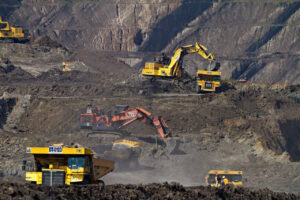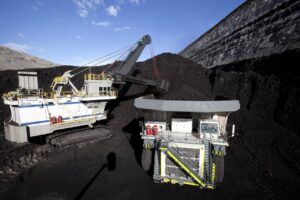The number of EV charging points in Japan, including fast-chargers and those installed in homes, has reached 40,000, surpassing the nation’s 34,000 gas stations, a new report has found.
The surprising figures were reported last week by Japanese auto giant Nissan, whose fully electric car, the Leaf, has been one of the world’s big EV success stories, selling 160,000 cars globally since its 2011 launch date.
According to recent company data, the largest global markets for the LEAF (30,200 in US and 15,096 in Europe), Nissan sold total 59,473. Add to this Canada with 1,085 and the total was 60,558 in 2014.
In the LEAF’s home market, however, range anxiety – the fear of having a flat battery out of range of a charger – has restrained consumer demand, says Bloomberg. Which is why the rapid expansion of the charging network is important news.

“An important element of the continued market growth is the development of the charging infrastructure,” Joseph G. Peter, Nissan chief financial officer, told analysts on a conference call.
But before we put too much store in Nissan’s EV charging point numbers, and their implications for the global EV market, it should be noted that petrol stations tend to have multiple pumps and can serve more vehicles in a day than an electric-car charging point.
Another point worth noting is that many of the charging sites counted in the Japanese total would be in private garages.
Although Bloomberg noted that, considering the emerging so-called sharing economy, homeowners may soon be willing to make their chargers available to other drivers.
And more charging locations are being built all the time, says Bloomberg, as EV makers acknowledge that oil companies are unlikely to install plugs next to petrol pumps, and so build their own networks.
As we have reported, Tesla has its own network of (solar powered) charging stations in the US – and has plans to build versions of this supercharge network in China, Europe and Australia.
In Australia, local fast-charge tech company, Tritium, installed its first public Veefil EV charger in Brisbane at a BMW dealership in Fortitude Valley – the first of a planned “electric super highway” of fast chargers along the east coast.
And in the US, BMW and Volkswagen have agreed to join the EV charging network operated by ChargePoint, and to help finance the roll-out of up to 100 fast chargers along the busiest corridors of the US coasts.
And just last week, US utility Pacific Gas & Electric (PG&E) filed a proposal for $654 million in ratepayer dollars to build 25,000 electric vehicle charging stations in public places in northern and central California – the leading market for EVs in the US.
A month earlier, in January, Kansas utility Great Plains Energy, announced plans to build a network of more than 1,000 charging stations in the region by mid-2015, with charging to be free to the public for the first two years.
Collaboration is important, as it is expensive to set up charging stations. A Japan Times article from September 2014 note that express stations can cost up to ¥9 million (nearly $A100,000) once construction fees were included.
Japan’s central government has also offered financial support to help set up charging stations, increasing the amount of subsidies to cover up to two-thirds of construction costs from March 2013.
On a private level, four automakers — Toyota, Honda, Nissan and Mitsubishi — jointly established a company called Nippon Charge Service in May that compensates set-up costs and operating fees for firms and municipalities looking to build a charging station.
The partnership allows them to set up the station free of charge (with government assistance), and looks to recoup investment costs by charging fees from drivers of electric vehicle who use the stations.










